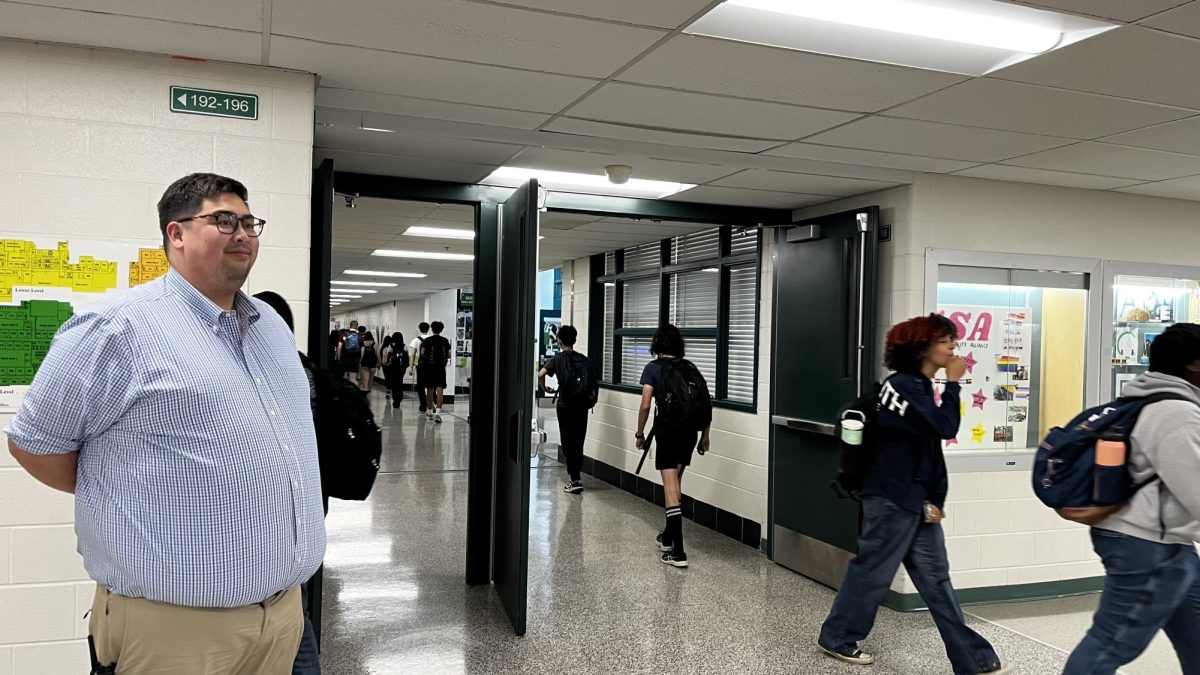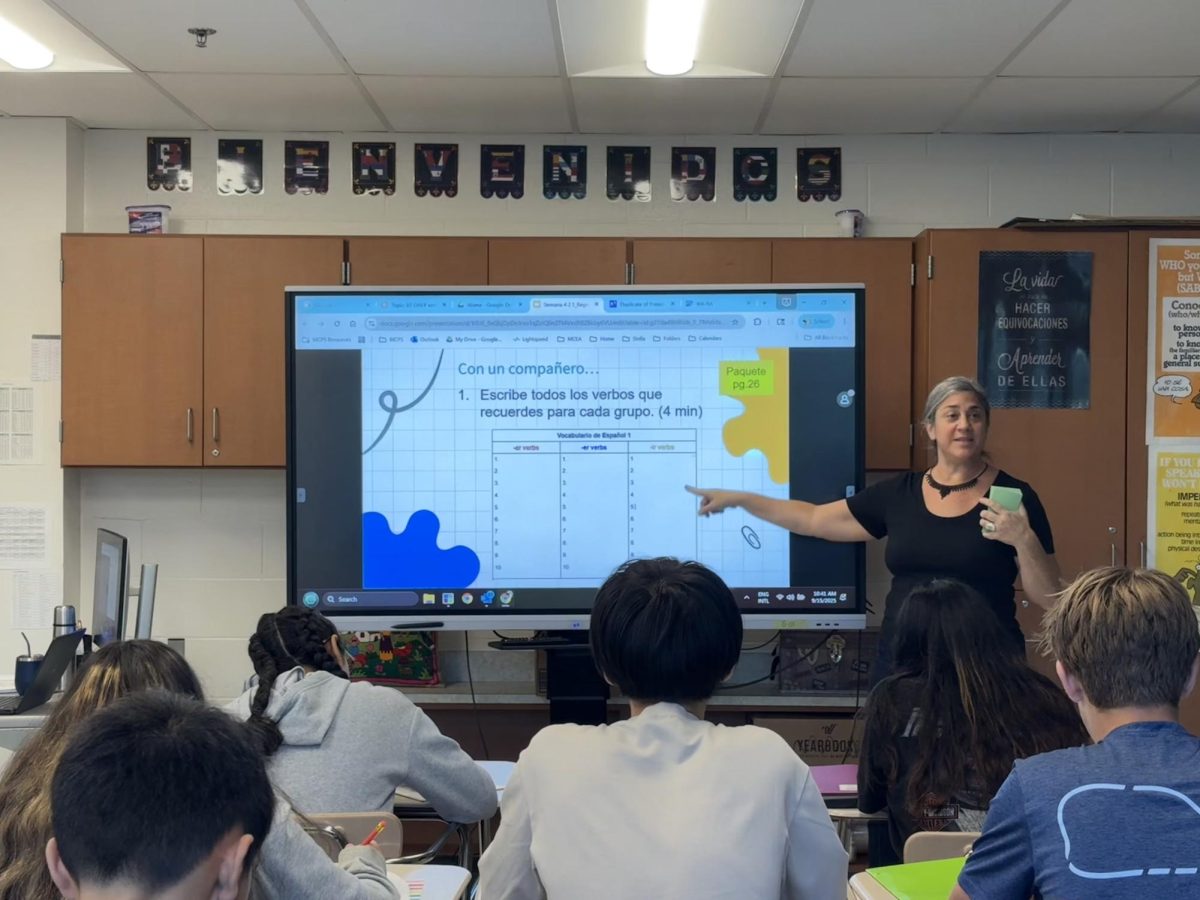The bond between twins, both identical and fraternal, is considered unique by many. Sharing the same birthday, house, friends and family is a distinct experience, and from those commonalities often grows a special bond.
“We’re kind of like best friends. We pretty much do everything together,” said freshman Kate Howie, of her twin sister Maggie. “I mean we’re sisters ‘cause we fight, but we do everything together like best friends would do.”
Maggie Howie described the relationship between twins as a closer one than that of typical siblings. She explained that a twin may share many classes and extra-curricular activities with their twin.
“A lot of time[s] your parents have you do the same activities so they don’t have to drive you a lot of different places, and so you’re always with [your twin],” she said. “With siblings, you can do separate things from them and you have separate friends and [your relationship is] just not as close.”
For senior Carly Van Wagoner, the relationship between her twin Emma and herself has evolved as they have grown older.
“We get into fewer fights now, probably because we both have matured,” she said. “When we were much younger we actually got into fist fights often, but that hasn’t happened for the longest time.”
She explained that their lives at school and at home differ in many ways.
“My life is different than [Emma’s] at school because of the classes we take,” she said. “I’m big on the science and art classes…and she hates science,” she said. “I feel like my school life is more hectic than hers. It is more common for Emma to go out on the weekends then it is for me.”
Sophomores Ariel and Julian Kopelove also described their relationship as “close,” despite being of the opposite sex.
“[Our relationship has] kinda always been this way,” said Julian Kopelove. “We’ve always just had fun with each other.”
“We all have our inside jokes,” added Ariel Kopelove.
Unfortunately for twins, being around one another most of the time and often bearing resemblance to each other can reap conflict in their lives. Younger twins face direct conflict with each other, often through physical fighting and arguing. However, older twins often face comparisons made by others which can be frustrating for both parties.
The Van Wagoners, both of whom are on the girls varsity soccer team, are often upset by these types of comparisons. Emma Van Wagoner explained that they are often compared on the basis of appearance and performance in school and sports, which she finds “really annoying.”
“Sometimes I don’t know how to deal with it. The one thing I hate the most is when people talk about who is prettier,” she said. “I honestly don’t care and don’t want to know because I don’t want people to hurt my feelings by saying Carly is prettier and I don’t want my sister to be upset if people say I’m prettier. It sucks.”
Carly Van Wagoner added that since twins are the same age, it is easier for others to make comparisons.
“For example my parents may praise me for my grades and they might yell at Emma to do her homework,” she said. “Or Emma might be extremely athletic and they’ll praise her for her athletic achievements and just say nothing to me at all.”
The Howie twins, who both also play the same sports, have also experienced comparisons between them. Maggie and Kate recognize their similarities in looks, sports, friends and grades.
“My least favorite [part of being a twin] is probably everyone saying that we’re the same people, and we’re not,” said Maggie Howie. “I understand [the comparisons] sometimes, [but] for people I’ve known for like a really long time, I find it kind of annoying. Like really, you’re still doing this?”
Maggie Howie explained how, at the start of the school year, when first getting acquainted with new classmates, mix-ups with Kate occurred often. However, they agreed that although they are similar in many ways, they have each branched out as they have grown older. Maggie said that she and Kate were “inseparable” in kindergarten, but Kate added that in middle school and high school they’ve made different friends, while still maintaining their close relationship with one another. She explained that they are in different classes now, and as a result, have different friends.
The comparisons don’t stop at same-sex twins. Julian Kopelove said that he and Ariel are often compared.
“Normally they say, ‘You remind me of Ariel when you do this,’” he said. “Ariel’s friends tell her that she acts like me too sometimes.”
Ariel Kopelove has a different perspective on the negative connotation of the comparisons.
“It makes us feel like we have a special bond,” she said.
“Yeah, we can tell each other stuff that we normally don’t talk about to other people,” said Julian Kopelove, who added that as a twin, he has someone in his age group with whom he can relate. He also explained the fact that twins may get more gifts, due to reasoning that if one twin receives something, the other must also get it.
Kate Howie said that her favorite part of having a twin is never really being alone.
“If I needed someone to talk to, she’s just always there,” she said. Maggie added that having a twin is like always having a friend with you.
Emma Van Wagoner explained that she enjoys being able to work on homework together and share clothes.
“There are times where we fight, some are more serious than others, but she’s like my best friend,” she said.
For better or for worse, these twins share a unique connection that only they can experience.








